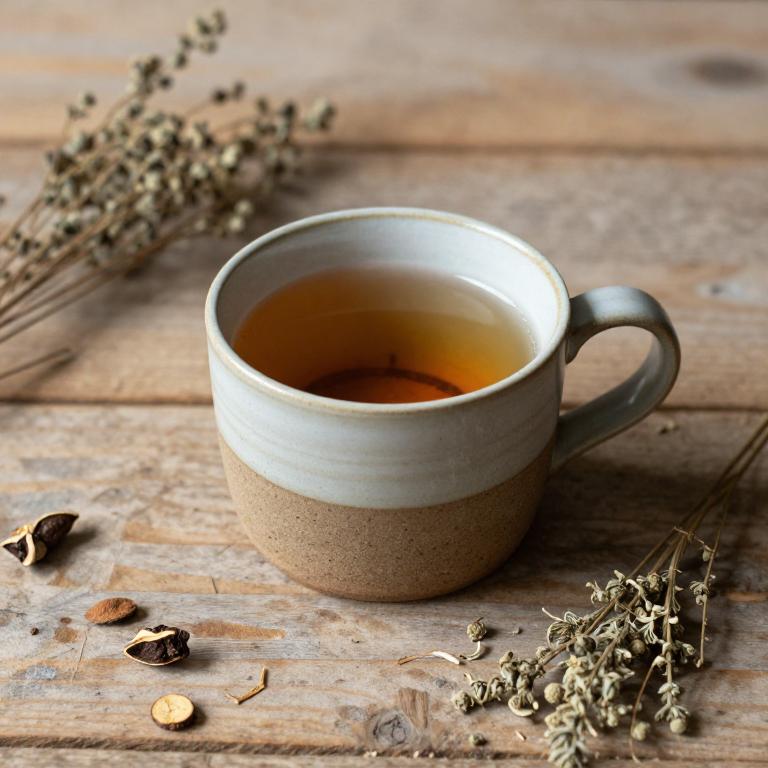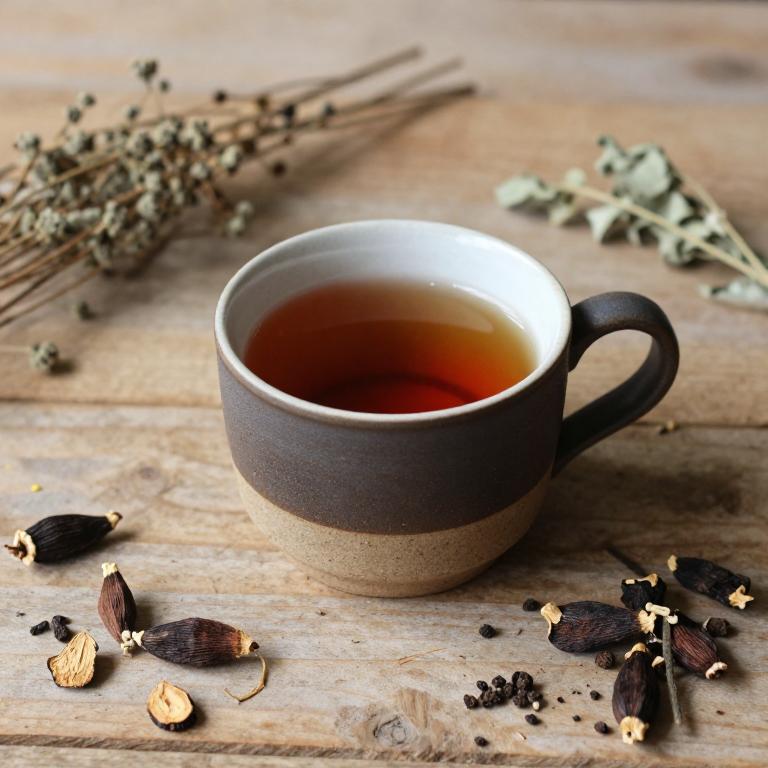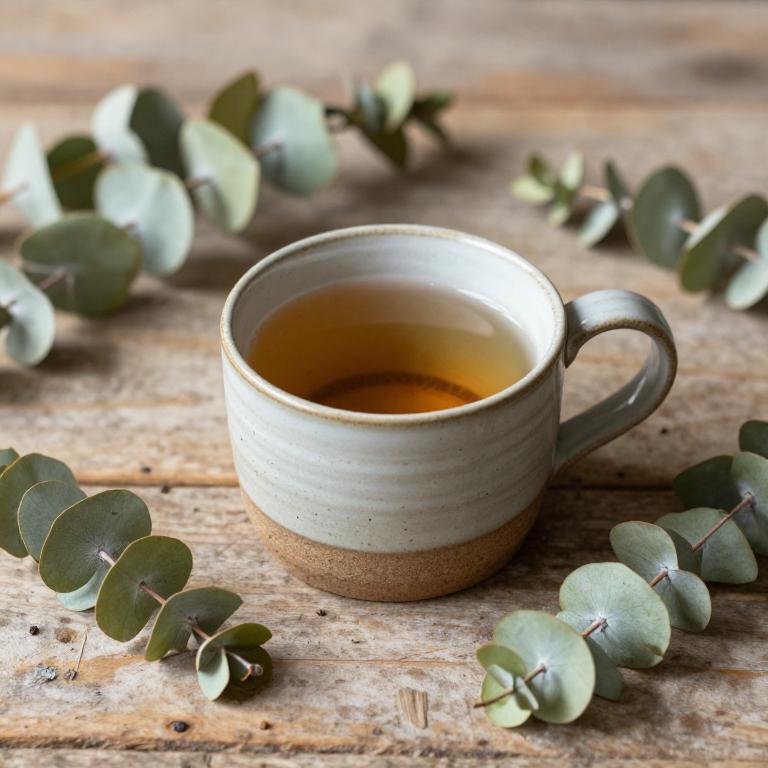10 Best Herbal Teas For Dental Plaque

Herbal teas have gained popularity as a natural alternative for promoting oral health, particularly in the prevention of dental plaque.
Certain herbs, such as green tea, peppermint, and chamomile, contain antimicrobial and anti-inflammatory properties that can help reduce the buildup of harmful bacteria in the mouth. These teas work by inhibiting the growth of Streptococcus mutans, a primary contributor to plaque formation. Regular consumption of herbal teas may also help freshen breath and soothe gum inflammation, supporting overall dental hygiene.
However, while they can complement traditional oral care routines, they should not replace professional dental cleanings or brushing with fluoride toothpaste.
Table of Contents
- 1. Salvia (Salvia officinalis)
- 2. Ceylon cinnamon (Cinnamomum verum)
- 3. Rosemary (Rosmarinus officinalis)
- 4. Thyme (Thymus vulgaris)
- 5. Camellia (Camellia sinensis)
- 6. Licorice (Glycyrrhiza glabra)
- 7. Black pepper (Piper nigrum)
- 8. Eucalyptus (Eucalyptus globulus)
- 9. Peppermint (Mentha piperita)
- 10. Stinging nettle (Urtica dioica)
1. Salvia (Salvia officinalis)

Salvia officinalis, commonly known as sage, has been traditionally used for its medicinal properties, including its potential benefits for oral health.
Herbal teas made from sage leaves contain compounds that may help reduce bacterial growth in the mouth, which is a primary contributor to dental plaque formation. Studies suggest that sage's antimicrobial and anti-inflammatory properties can inhibit the proliferation of harmful bacteria like Streptococcus mutans. Incorporating sage herbal tea into a daily routine may support natural mouth cleansing and promote healthier gums.
However, it is advisable to consult with a dentist or healthcare professional before using sage as a regular part of a dental care regimen.
2. Ceylon cinnamon (Cinnamomum verum)

Cinnamomum verum, commonly known as true cinnamon, is increasingly being explored for its potential benefits in reducing dental plaque due to its antimicrobial and anti-inflammatory properties.
The essential oils in cinnamon, particularly cinnamaldehyde and eugenol, have shown efficacy in inhibiting the growth of bacteria such as Streptococcus mutans, which are primary contributors to plaque formation. When used in herbal teas, cinnamon can help freshen breath and support oral hygiene by reducing bacterial buildup on teeth and gums. Regular consumption of cinnamon-infused tea may complement traditional dental care routines, promoting healthier gums and preventing early signs of gingivitis.
However, it is important to note that while cinnamon tea may offer supportive benefits, it should not replace professional dental care or treatments recommended by a dentist.
3. Rosemary (Rosmarinus officinalis)

Rosmarinus officinalis, commonly known as rosemary, is a fragrant herb that has been traditionally used for its aromatic and medicinal properties.
Rosemary herbal tea is gaining popularity for its potential benefits in oral health, particularly in reducing dental plaque. The essential oils in rosemary, such as rosmarinic acid and camphor, have antimicrobial properties that may inhibit the growth of bacteria responsible for plaque formation. Studies suggest that regular consumption of rosemary tea can help maintain a cleaner mouth environment by reducing bacterial buildup.
While it should not replace professional dental care, incorporating rosemary tea into a daily routine may support overall oral hygiene and fresh breath.
4. Thyme (Thymus vulgaris)

Thymus vulgaris, commonly known as thyme, is a popular herb used in herbal teas for its potent antimicrobial and anti-inflammatory properties.
When brewed into a herbal tea, thyme can help reduce the buildup of dental plaque by inhibiting the growth of bacteria that contribute to plaque formation. The essential oils in thyme, particularly thymol, have been shown to exhibit strong antibacterial effects against common oral pathogens such as Streptococcus mutans. Regular consumption of thyme herbal tea may support overall oral health and complement traditional dental hygiene practices.
However, it is advisable to consult with a healthcare professional before incorporating thyme tea into a daily routine, especially for individuals with known allergies or medical conditions.
5. Camellia (Camellia sinensis)

Camellia sinensis, the plant from which green and black teas are derived, contains bioactive compounds such as polyphenols and catechins that have been shown to inhibit the growth of bacteria associated with dental plaque.
These compounds work by reducing the adhesion of bacteria to teeth surfaces and disrupting biofilm formation, which is a key factor in plaque development. Studies suggest that regular consumption of Camellia sinensis herbal teas may help reduce the accumulation of dental plaque and promote oral health. Additionally, the antioxidants in these teas can support overall gum health and reduce inflammation.
However, while Camellia sinensis teas may offer supportive benefits, they should not replace professional dental care or oral hygiene routines.
6. Licorice (Glycyrrhiza glabra)

Glycyrrhiza glabra, commonly known as licorice root, has been traditionally used in herbal medicine for its potential benefits in oral health.
Studies suggest that the active compounds in licorice root, such as glycyrrhizin and flavonoids, may help reduce the formation of dental plaque by inhibiting the growth of bacteria that contribute to plaque buildup. When used in herbal teas, glycyrrhiza glabra can act as a natural antimicrobial agent, promoting a cleaner oral environment. Its anti-inflammatory properties may also help alleviate gum irritation and inflammation associated with plaque.
However, excessive consumption of licorice root tea should be avoided, as it may lead to side effects such as increased blood pressure due to its effects on the adrenal glands.
7. Black pepper (Piper nigrum)

Piper nigrum, commonly known as black pepper, has been traditionally used in herbal teas for its potential benefits in oral health.
The active compound in black pepper, piperine, is believed to have antimicrobial properties that may help reduce the growth of bacteria associated with dental plaque. When consumed as a herbal tea, black pepper can support oral hygiene by inhibiting the formation of plaque and preventing gum inflammation. However, it is important to note that while some preliminary studies suggest its benefits, more research is needed to confirm its efficacy in clinical settings.
As with any herbal remedy, it should be used in moderation and in consultation with a healthcare provider.
8. Eucalyptus (Eucalyptus globulus)

Eucalyptus globulus, commonly known as eucalyptus oil, has been increasingly used in herbal teas for its potential benefits in dental health, particularly in reducing dental plaque.
The active compounds in eucalyptus, such as eucalyptol and cineole, exhibit antimicrobial properties that can inhibit the growth of bacteria responsible for plaque formation. When consumed as a herbal tea, eucalyptus globulus may help reduce the bacterial load in the mouth, thereby supporting oral hygiene. However, while some preliminary studies suggest its efficacy, more research is needed to confirm its long-term effects and safety for regular use.
As a complementary approach, eucalyptus globulus herbal tea can be a natural option to support dental health when used alongside proper oral care practices.
9. Peppermint (Mentha piperita)

Mentha piperita, commonly known as peppermint, is a popular herb used in herbal teas for its refreshing and therapeutic properties.
Peppermint tea has been traditionally used to promote oral health due to its natural antibacterial and anti-inflammatory effects, which can help reduce the buildup of dental plaque. The essential oils in peppermint, such as menthol and limonene, have been shown to inhibit the growth of bacteria that contribute to plaque formation. Regular consumption of peppermint tea may support gum health and freshen breath by reducing harmful oral bacteria.
While it is not a substitute for proper dental hygiene, peppermint tea can be a beneficial complementary practice in maintaining overall oral wellness.
10. Stinging nettle (Urtica dioica)

Urtica dioica, commonly known as stinging nettle, has been traditionally used in herbal medicine for its potential health benefits, including its role in supporting oral health.
When brewed into a herbal tea, stinging nettle may help reduce dental plaque due to its high content of antioxidants and anti-inflammatory compounds. The tea's ability to neutralize bacteria in the mouth may contribute to preventing the buildup of plaque on teeth. Some studies suggest that the natural compounds in urtica dioica can inhibit the growth of harmful oral bacteria, promoting a cleaner mouth environment.
However, while preliminary research is promising, more scientific studies are needed to fully understand its effectiveness in dental plaque prevention.